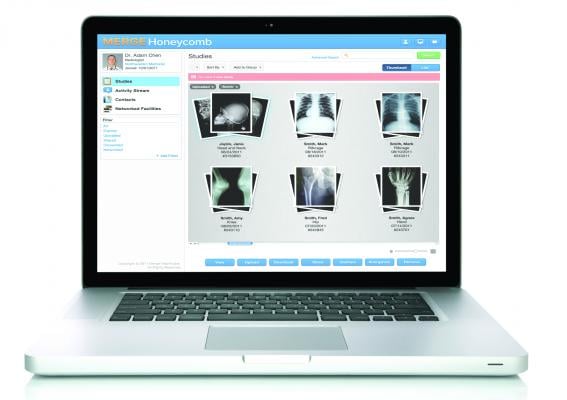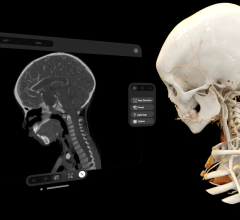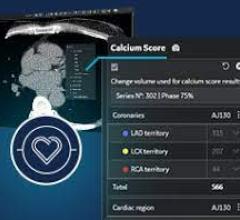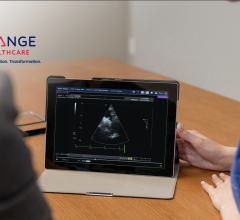
August 6, 2015 — IBM announced that its Watson Health Cloud will gain the ability to “see” following the planned acquisition of Merge Healthcare for $1 billion. The deal brings together Watson’s advanced image analytics and cognitive capabilities with data and images obtained from Merge’s medical imaging management platform.
Merge’s technology platforms are used at more than 7,500 U.S. healthcare sites, as well as most of the world’s leading clinical research institutes and pharmaceutical firms to manage a growing body of medical images. The vision is that these organizations could use the Watson Health Cloud to surface new insights from a consolidated, patient-centric view of current and historical images, electronic health records, data from wearable devices and other related medical data, in a HIPAA-enabled environment.
Under terms of the transaction, Merge shareholders would receive $7.13 per share in cash, for a total transaction value of $1 billion. The closing of the transaction is subject to regulatory review, Merge shareholder approval and other customary closing conditions, and is anticipated to occur later this year. It is IBM’s third major health-related acquisition – and the largest – since launching its Watson Health unit in April, following Phytel (population health) and Explorys (cloud based healthcare intelligence).
“As a best-of-breed imaging informatics company dedicated to advancing the field of medical imaging, Merge will be able to deliver industry-leading analytics capabilities to its imaging customers and to apply its imaging expertise within the broader context of health IT,” said Frost & Sullivan’s Advance Medical Technology market analyst Nadim Daher. “For IBM, the acquisition extends its access to a large new U.S. customer base, and increases its competencies in drug development and clinical trials. In additional, this provides new avenues of growth for Watson Health through the inclusion of imaging.”
The planned acquisition bolsters IBM’s strategy to add rich image analytics with deep learning to the Watson Health platform – in effect, advancing Watson beyond natural language and giving it the ability to “see.” Medical images are by far the largest and fastest-growing data source in the healthcare industry and perhaps the world – IBM researchers estimate that they account for at least 90 percent of all medical data today – but they also present challenges that need to be addressed:
- The volume of medical images can be overwhelming to even the most sophisticated specialists – radiologists in some hospital emergency rooms are presented with as many as 100,000 images a day;
- Tools to help clinicians extract insights from medical images remain very limited, requiring most analysis to be done manually; and
- At a time when the most powerful insights come at the intersection of diverse data sets (medical records, lab tests, genomics, etc.), medical images remain largely disconnected from mainstream health information.
IBM plans to leverage the Watson Health Cloud to analyze and cross-reference medical images against a deep trove of lab results, electronic health records, genomic tests, clinical studies and other health-related data sources, already representing 315 billion data points and 90 million unique records. Merge’s clients could compare new medical images with a patient’s image history as well as populations of similar patients to detect changes and anomalies. Insights generated by Watson could then help healthcare providers in fields including radiology, cardiology, orthopedics and ophthalmology to pursue more personalized approaches to diagnosis, treatment and monitoring of patients.
Cutting-edge image analytics projects underway in IBM Research’s global labs suggest additional areas where progress can be made. They include teaching Watson to filter clinical and diagnostic imaging information to help clinicians identify anomalies and form recommendations, which could help reduce physician viewing loads and increase physician effectiveness.
The combination of Watson Health with Merge’s product and solution offerings could also:
- Offer researchers insights to aid clinical trial design, monitoring and evaluation;
- Help clinicians to efficiently identify options for the diagnosis, treatment and monitoring a broad array of health conditions such as cancer, stroke and heart disease;
- Enable providers and payers to integrate and optimize patient engagement in alignment with meaningful use and value-based care guidelines; and
- Support researchers and healthcare professionals as they advance the emerging discipline of population health, which aims to optimize an individual’s care by identifying trends in large numbers of people with similar health status.
For more information: www.merge.com


 December 23, 2025
December 23, 2025 









